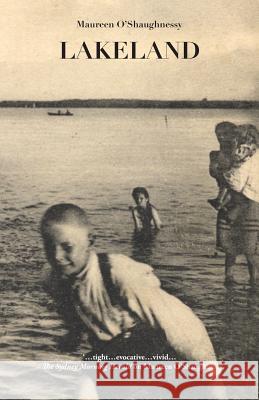Lakeland » książka
Lakeland
ISBN-13: 9781760410445 / Angielski / Miękka / 2015 / 158 str.
'In this story it's possible to make a beginning and end; it should be understood, though, the lines are arbitrary...' So says Gunnar Abt at the Alexanderplatz police headquarters after the murder of a young communist in 1934. His response raises one of history's big questions: how do we make sense of the actions of ordinary people under a regime whose unspeakable deeds ensured that there were no longer any ordinary people? Lakeland is a hybrid novel, a ctional recreation told in prose and verse of the lives of multiple characters in one family. Inspired by real events, the story moves in and out of Nazi Germany, across the two hemispheres and through generations of exile and emigration. In the rst years of the twentieth century, Anna, a young woman from a middle-class family, gives birth, unmarried, to twins. While she keeps her son, her illegitimate daughter Helene is raised by the state and later 'adopted' by her aunt so as to be allowed to marry Hans, an affluent Prussian industrialist. Hans is captured by the Russians in 1945 and imprisoned near Leningrad, where he dies in a gulag. Helene twice ees with her children, first to the Communist East then to West Germany, where in the early 60s her daughter Sieglinde meets and marries an Australian. He takes her to Sydney, then to Melbourne, where they have a family of their own, rapidly producing seven children who know little of their mother's past. Lakeland cross-cuts between the intimacies of family life and the world at large. Capturing incidents of love and doubt, loss and reunion, rupture and resistance, the many voices together build a collective memoir that speaks of what we may work to conceal but can never escape."
'In this story it’s possible to make a beginning and end; it should be understood, though, the lines are arbitrary…' So says Gunnar Abt at the Alexanderplatz police headquarters after the murder of a young communist in 1934. His response raises one of history’s big questions: how do we make sense of the actions of ordinary people under a regime whose unspeakable deeds ensured that there were no longer any ordinary people? Lakeland is a hybrid novel, a ?ctional recreation told in prose and verse of the lives of multiple characters in one family. Inspired by real events, the story moves in and out of Nazi Germany, across the two hemispheres and through generations of exile and emigration. In the ?rst years of the twentieth century, Anna, a young woman from a middle-class family, gives birth, unmarried, to twins. While she keeps her son, her illegitimate daughter Helene is raised by the state and later ‘adopted’ by her aunt so as to be allowed to marry Hans, an affluent Prussian industrialist. Hans is captured by the Russians in 1945 and imprisoned near Leningrad, where he dies in a gulag. Helene twice ?ees with her children, first to the Communist East then to West Germany, where in the early 60s her daughter Sieglinde meets and marries an Australian. He takes her to Sydney, then to Melbourne, where they have a family of their own, rapidly producing seven children who know little of their mother’s past. Lakeland cross-cuts between the intimacies of family life and the world at large. Capturing incidents of love and doubt, loss and reunion, rupture and resistance, the many voices together build a collective memoir that speaks of what we may work to conceal but can never escape.











